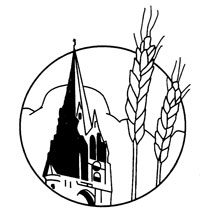Oxford Conference 2009: A farmer’s perspective

Philip Halhead, of Norbreck Genetics, Lancashire, gives his view on the speeches, debates and networking from the 2009 Oxford Farming Conference.
“A conference as prestigious as Oxford obviously has to open with the politicians in power both in the UK and the EU and Hilary Benn gave a very polished performance, but it is difficult to be convinced until words are translated into meaningful actions and balanced with the ‘grass roots’ practicality of implementation.
The overall message from the two days was one of cautious optimism with the need to be more aware of the markets volatility and farmers will need to manage risk more than previously.
‘More choice, lower prices and better service’
The rest of the first day papers from the sharp end of the market place were quite fascinating; the rapid growth of the Bakkovor group to become a world class producer of prepared foods; most impressive was CEO Charles Wilson and his turnaround of Booker Group from the brink of disaster in 2005 to its present exciting growth situation. He turned a vicious spiral of decline into a virtuous spiral of growth.
The key areas to help the turnaround were to give customers more choice, lower prices and better service.
Martin Taylor of Long Clawson Dairy gave an insight into the workings of a farmer cooperative producing a nationally known range of cheese and Jim Brown gave a very forthright and amusing account of his beef farming in Scotland.
‘Demand-led solutions’
The Tuesday evening debate had a fairly bland motion that failed to inspire until that renowned wordsmith, Guy Smith, brought it to life with his incisive comment and humour. The famous Oxford Union being the perfect arena for a lively debate and hopefully one the Oxford committee will revisit next year.
The second day turned out to be a cracking day starting with Professor Alistair Lawrence of SAC with a very balanced report on the research into animal welfare in food production and animal welfare context and how much welfare can farmers afford to deliver.
Alistair stated we needed ‘demand-led solutions to animal welfare’, but it is also important to consider animal welfare in an economic context.
‘Give the consumer true provenance’
This was followed by Mark Hayward with his Dingley Dell pork story, a conventional pig farm that converted to an outdoor production unit of 650 sows to address the demand for tasty welfare friendly meat with provenance and low food miles.
This was a very good marketing operation, not relying solely on the little red tractor logo, Mark stating that farmers needed to be more sophisticated and give the consumer true provenance back to the farmer and farm gate.
He also pointed out in connection with welfare that while outdoor units were better for the sow they were probably poorer for the piglets and in contrast intensive indoor units were more restrictive for the sow but better for the piglets.
GM technology
Dr Bruce Lee from CSIRO (Commonwealth Scientific and Industrial Research Organisation) delivered the Frank Parkinson lecture. He gave an impressive insight of the achievements of the Australian flagship research programme, having embraced GM technology they have created a range of cereal grains and oil seeds which will have a positive impact on lifestyle diseases.
These include diabetes, colon cancer, cardiovascular problems and celiac. I feel the critics of GM technology who are not interested in being able to feed billions more people may accept it if they know it could help cure a relative from a list of debilitating diseases.
The Panel discussion had the potential to become lively due to an excellent choice of panellists most notably Shirley Harrison from Scotland, however time limited the debate and we moved into lunch which incidentally was excellent as all the catering was over both days.
‘Not the old boys club people assume’
The final afternoon session with HRH Princess Royal in attendance was truly outstanding.
The IGD research explained by Joanne Denney-Finch and facilitated by Prof. David Hughes who organised the digital voting and audience participation, added a new dimension to the conference experience.
Most interestingly the results showed that over 34% of the attendance at the conference were farmers and 27% were under 35 years old. Not perhaps the ‘old boys’ club that some may have assumed.
‘Seek positive ground with confidence’
In the final three papers we had what I consider to be the best of the whole conference, ‘Turning the tide’ by David Yelland, who told us to leave behind the low expectations and victim culture and seek the higher positive ground with confidence.
Farmers have literally inherited the earth but then given it away – getting it back is the future of farming and It is in our hands.”
See more stories, pictures and videos from the 2009 Oxford Conference
